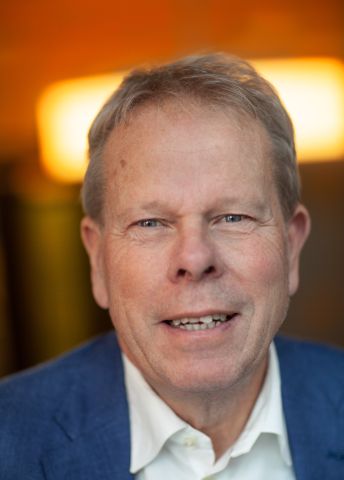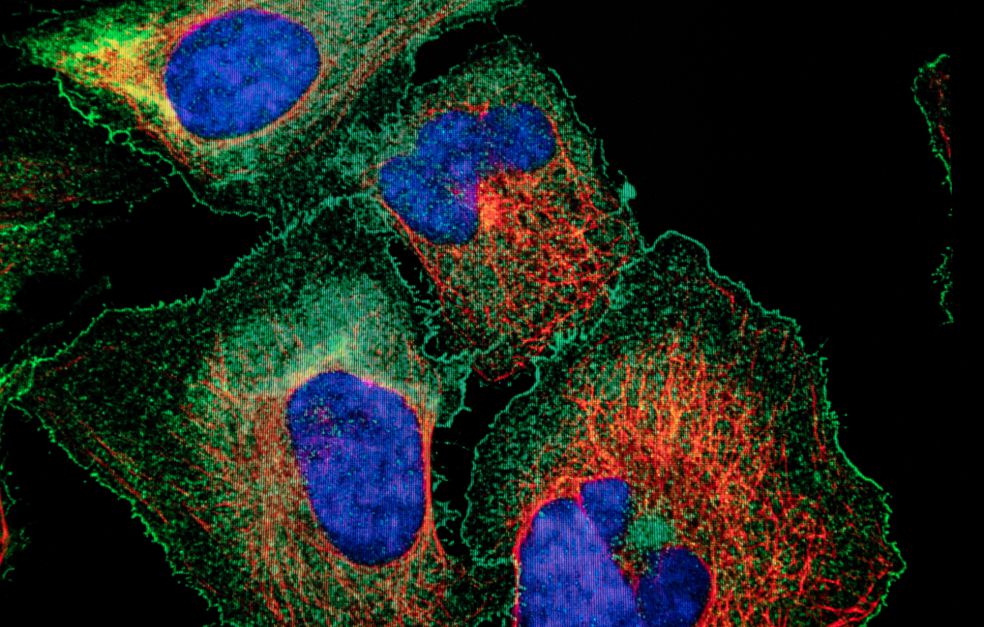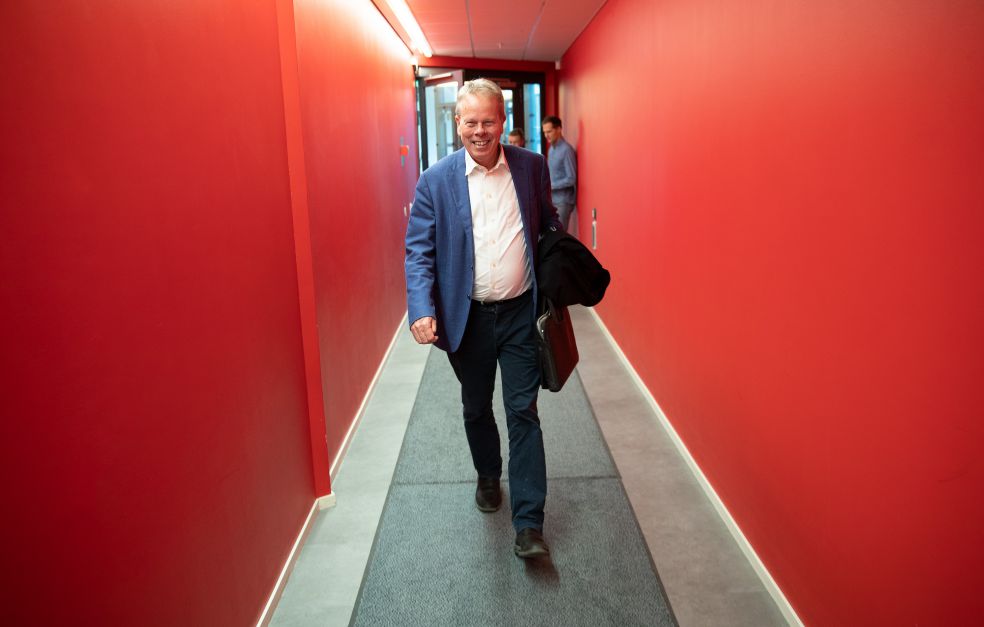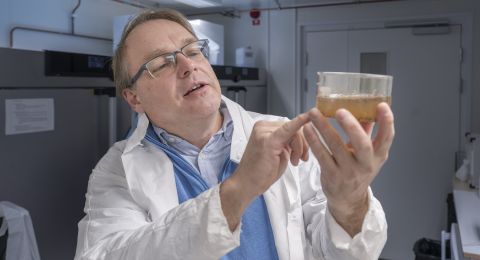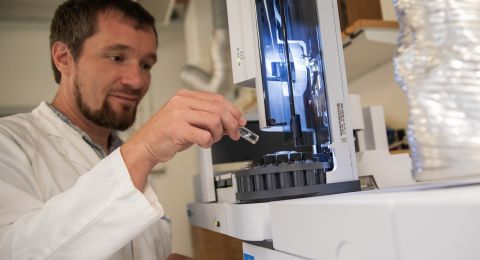Mathias Uhlén is a driving force behind one of the largest research projects ever conducted in Sweden: mapping all proteins in the body. Rewards are now being reaped in the form of new biodrugs and diagnostic methods.
Mathias Uhlén
Professor of Biotechnology, KTH Royal Institute of Technology; Professor of Molecular Bioscience, Danish Technical University; Professor of Neuroscience, Karolinska Institutet
Wallenberg Scholar
Institutions:
KTH Royal Institute of Technology, Karolinska Institutet, Danish Technical University
Research field:
Advancing knowledge about human proteins to develop new drugs and diagnostic methods.
The Human Protein Atlas has been funded by Knut and Alice Wallenberg Foundation since 2003. It describes the 20,000 or so proteins found in the human body. In recent years the project has focused on describing where in the body specific proteins are located.
Six editions of the atlas have been published to date. They describe the skin, cells, blood, brain, parts of human metabolism and our cancer cells.
“It caused a big splash last year when we launched three editions simultaneously. And having five articles published in Science over the past five years is another first for Sweden. I’m also very proud that one of them is the most cited research article with a Swedish principal author published in the past six years,” says Uhlén, who is professor of biotechnology at KTH Royal Institute of Technology.
“I’m incredibly grateful to KAW, whose generous long-term support has enabled me to devote my energies to research rather than bureaucracy. I have grown enormously as a result, particularly over the past twenty years.”
The body’s workers
The Protein Atlas has been likened to a periodic system of the body’s proteins. These build up our cells, catalyze chemical reactions and act as hormones and signal substances. Most proteins are present in all cells, but some are specific to different tissues. These specific proteins have now been described in the various editions of the atlas.
The knowledge that has been gathered has attracted over four million visitors a year to the Protein Atlas, which makes it one of the largest biological databases in the world.
“It’s hugely gratifying. Researchers from some 200 countries have made use of the database, and everyday visitors from all major drug companies visit the database.”
In 2016 Uhlén was involved in founding Wallenberg Center for Protein Research (WCPR), funded by Knut and Alice Wallenberg Foundation and two pharmaceutical companies: Astra Zeneca and Novo Nordisk.
“We’re refining the Protein Atlas, and working on new drugs and diagnostic methods at the same time. And we’ve been really successful: four companies have been spun off over the past five years – all of them with substances in clinical phases.”
The aim is that better diagnostic methods will shorten the time to treatment. Uhlén’s envisions all Swedish citizens providing regular blood samples, to be analyzed continuously with the help of A.I. When it is time for a medical check-up, all relevant information will be ready.
“But there’s still a long way to go. One of the reasons is that our tests generate too much noise. Subtle differences are lost in the technical noise, so we need to improve the technologies, and make them more quantitative. But we’ll get there.”
He mentions research ongoing at Sahlgrenska University Hospital, in which researchers are monitoring 100 subjects over two years, taking samples from them every three months.
“It’s very interesting to see the huge differences between one person and another. Everyone’s blood is a kind of fingerprint – a fact we should take advantage of for diagnostic purposes. We have to start comparing John Doe with John Doe, instead of with a population of John Does.”
Prize-winning research leader
Uhlén’s Scholar grant has now been renewed. He regards it as the most prestigious award a researcher can receive in Sweden.
Alongside numerous prizes, Uhlén’s C.V. includes the formation of some 20 companies, of which four are now listed on the stock exchange. When he received KTH’s Grand Prize in 2006, he was described as “the embodiment of an entrepreneur in the guise of a researcher.”
“As a research leader you have to have good ideas, but in that you are by no means alone – you must be able to communicate them, both within and outside the scientific community. And if you are to succeed, you must also be able to lead a team.”
He likens leadership to taking an elevator between different floors. The helicopter view from the top floor is just as important as taking the elevator down to the basement to fix any leaks that occur.
“That’s what I do – I take the elevator. And I take an extremely pro-active approach to meetings. Meetings can be incredibly inefficient and filled with platitudes. But there is a type of meeting that drives projects forward. As chair of the meeting, you need to be extremely well-organized before, during and after it.”
Uhlén is a technologist from KTH who has given us a deeper understanding of our biology. In 2010 he co-founded SciLifeLab (Science for Life Laboratory), which is now a national resource, and one of the leading research environments in Europe.
Uhlén was Director of SciLifelab for the first five years of its existence, but now counts himself among its 1,200 or so employees – a role he is comfortable with. He was also recently appointed professor of neuroscience at Karolinska Institutet.
“At Karolinska I can contribute the data-driven technical angle. Expertise in neuroscience is down to other KI professors. When we pool our resources we can make sweet music.”
He emphasizes the benefits of a multidisciplinary approach, in which different team members contribute their unique knowledge and skills.
“We have great teamwork skills and traditions in Sweden. None of us could have produced the Protein Atlas on their own, but when we combine our strengths we come to the fore.”
Text Magnus Trogen Pahlén
Translation Maxwell Arding
Photo Magnus Bergström
